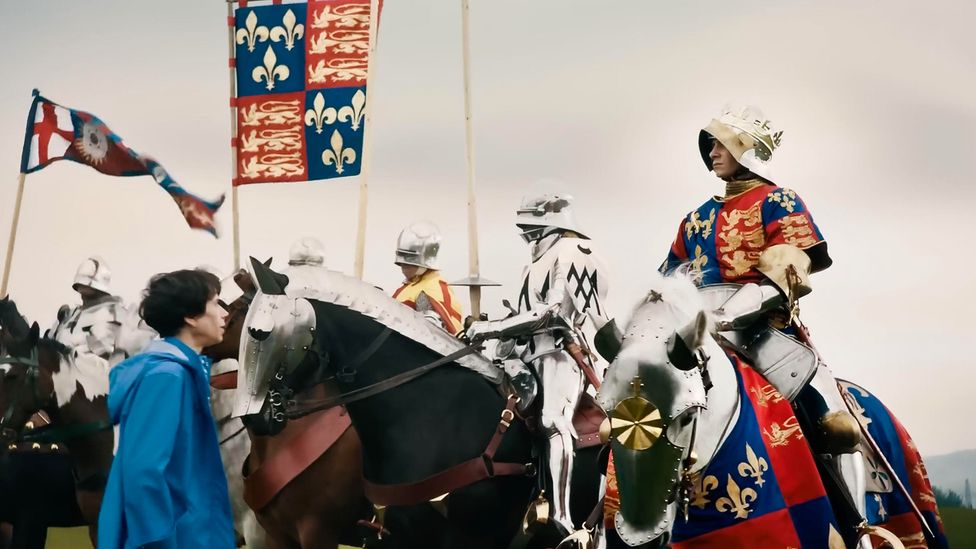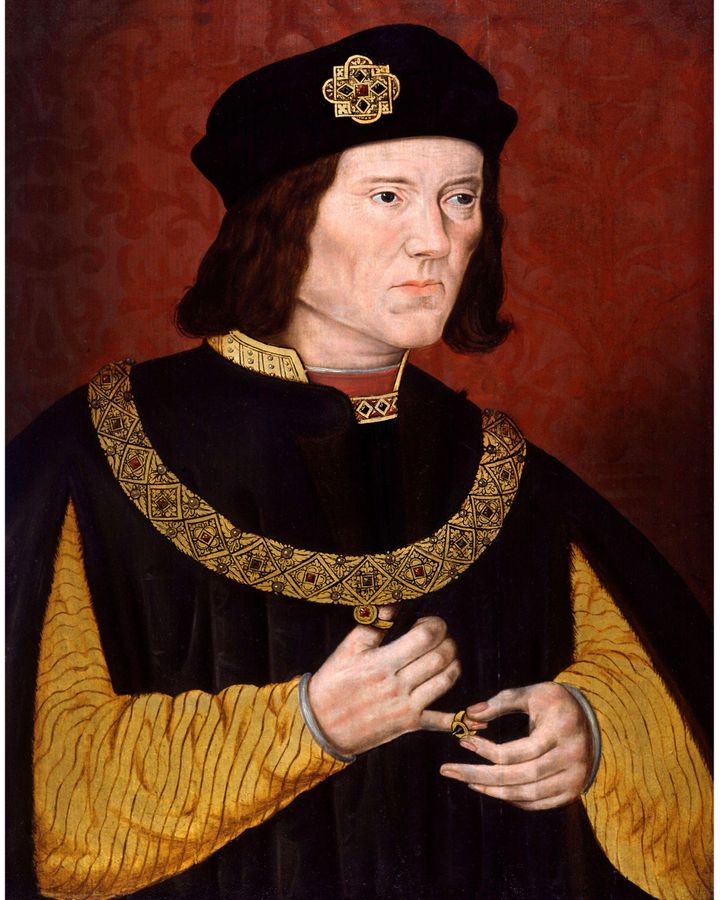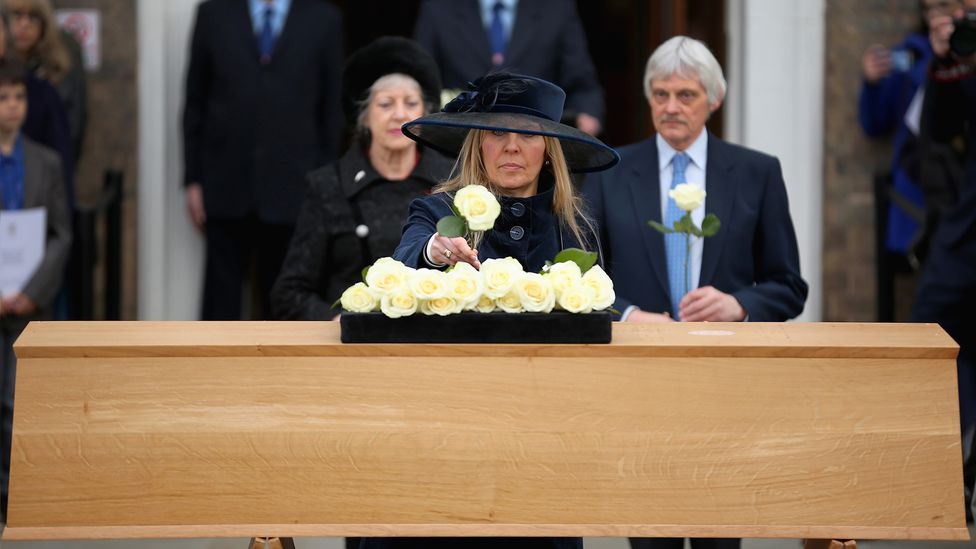A controversial archaeological find

It would be an irony that Shakespeare might have appreciated if a film revolving around a quest to clear the name of one Richard were to tarnish the name of another.
Released today in UK cinemas, after premiering at the Toronto Film Festival last month, The Lost King is based on the extraordinary real-life story of amateur historian Philippa Langley’s search for the lost remains of Richard III. She was the driving force behind an excavation carried out in a car park in Leicester in 2012 which, incredibly, uncovered the bones of the last Plantagenet king. However, the actual digging was planned and carried out by archaeologists from the University of Leicester and now the university is up in arms at its depiction in the film, written by Steve Coogan and Jeff Pope and starring Sally Hawkins as Langley and Coogan as her ex-husband John.
More like this:
– Shakespeare’s most contested villain
– The buried ship found on an English estate
– 11 of the best films to watch this October
In particular, the university’s former deputy registrar Richard Taylor is distraught at his portrayal as obstructive, manipulative and sexist. The film’s Taylor is, essentially, the villain of the piece. At first, he’s dismissive of the whole project, treating it as a joke. For example, at an initial meeting to pitch her idea of the dig, Langley makes the mistake of saying she has a strong “feeling” she’s found an important site. “A ‘feeling’ is what you get when you sit on bus seat that’s still warm,” Taylor sneers. Then, when Langley is proved right, he does his utmost to keep her out of the picture while the university basks in the glory. Taylor tells BBC Culture he is considering legal action. The Lost King team are standing by their version of events and say in a statement: “The filmmakers believe the portrayal of the university is fair and accurate based on Philippa’s experience as corroborated by the filmmakers’ independent research.”

The Lost King stars Sally Hawkins (left) as amateur historian Phillippa Langley, who instigated the search for Richard III’s remains (Credit: Alamy)
Viewers will sift through the evidence and make up their own minds but to understand the passions that Richard III still arouses, it helps to know the background.
Richard was the last English king to die in battle, killed at Bosworth on 22 August, 1485, fighting the forces of Henry Tudor. The consequent ascension of the Lancastrian Henry Tudor to the throne as Henry VII, and his marriage to Princess Elizabeth of the House of York, marked the end of the lengthy and bloody dynastic struggle we now call the Wars of the Roses (which, incidentally, were one of the main inspirations for fantasy writer George RR Martin in his A Song of Ice and Fire – which pits the House of Lannister against the House of Stark, rather than Lancaster against York). In The Lost King, Richard appears in visions to Langley (played by Harry Lloyd).
Richard’s body was hastily buried in the church of the Franciscan friars – the Grey Friars – in Leicester. Henry VII set about presenting his reign as a fresh start and made sure that chroniclers presented his victory as a triumph of good over evil. This meant portraying Richard as a villain in what we would now call a “smear campaign”. As the bestselling historical novelist Philippa Gregory, who has written extensively about the Plantagenets and the Tudors, has pointed out: “The Yorkists lost to the house of Lancaster, and history, of course, gets told by the victors.” The hugely successful PR initiative culminated in Shakespeare’s Richard III, which Richard’s modern-day supporters – known as Ricardians – regard as one of the most effective hatchet jobs of all time.
Shakespeare was writing a century after the events he was depicting, during the reign of Henry VII’s granddaughter, Elizabeth, and was dependent on the works of Tudor propagandists for his information – his monarch is a right royal rotter. An absolute monster who “can smile, and murder whiles I smile”. A scheming, black-hearted supervillain who thinks nothing of having his two young nephews, the Princes in the Tower, killed in order to remove a perceived threat. His distinctive physical characteristics – a hunchback, a withered arm – signalled his evil to Elizabethan audiences.
When the world’s greatest writer trashes your reputation, it tends to stay trashed and the view of Richard III as a thoroughly bad lot was the prevailing one until the 20th Century when a pro-Richard movement, aimed at rehabilitating his reputation, began to gain ground.
Josephine Tey’s 1951 detective novel The Daughter of Time (newly reissued in Penguin Paperback), in which a bed-bound Scotland Yard inspector amuses himself by taking on a cold case and investigating Richard’s alleged crimes, was highly influential. The laid-up cop concludes that – spoiler alert – Henry VII was actually responsible for murdering the princes. And The Richard III Society, founded in 1924 by some amateur historians in order to encourage a re-examination of Richard and his achievements – as the film version of Philippa Langley points out, he was a zealous legal reformer – has also been key in shifting opinions.
How the search began
Langley, a mother of two who lived in Edinburgh and worked in marketing, became interested in Richard III in 1998 after reading a biography that questioned the Shakespearean portrayal of him. She joined the Richard III Society and in her book The Lost King: The Search for Richard III, co-written with Michael Jones, she says that “the view of the society’s patron, the Duke of Gloucester, and his moving dedication address in 1980 in defence of ‘something as esoteric and fragile as reputation’ captivated me”. She started trying to write a screenplay about Richard and, in 2004, travelled to Leicester, the city where Richard had been buried in a now lost grave.

Richard III is a king who has long been a source of dispute, especially over his cultural status as a villain (Credit: Alamy)
It was rumoured Richard might have been buried in an area that was now New Street car park but Langley felt strongly drawn to a private car park on the other side of the road. When there Langley felt, according to her book, “a strange sensation. My heart was pounding and my mouth was dry – it was a feeling of raw excitement tinged with fear… I knew in my innermost being that Richard’s body lay here. Moreover, I was certain that I was standing right on top of his grave.” She returned a year later to confirm that she hadn’t simply imagined the sensation. She again felt goosebumps and, looking down, she now noticed a white “R” on the tarmac. It stood for “Reserved” rather than “Richard” but for Langley, “it told me all I needed to know”. However she also knew that a gut feeling wouldn’t persuade archaeologists so she continued researching and, over a number of years, assembled a dossier of evidence supporting her instinct that the king was buried under the car park.
In January 2011, she approached the University of Leicester Archaeological Services (ULAS) with the idea of searching for the burial place of Richard III and ULAS came on board because of their interest in the old friary church in which he was known to have been entombed. They certainly had no expectation of finding Richard himself; Richard Buckley, Head of the University of Leicester’s Archaeology Services, has said the chance of discovering the remains had been “a million to one”. The university put money into the project. Langley raised some money through an appeal to the Richard III Society. And, as the world now knows, the dig was successful beyond all imagining.
Within the first few hours of digging, on 25 August 2012, bones were found that full excavation revealed to be part of the battle-scarred skeleton of someone with a curvature of the spine. This man was not a hunchback and there was nothing unusual about his arms but subsequent DNA analysis, carried out by University of Leicester genetics professor Turi King, confirmed that these were indeed the remains of Richard III. The discovery made headlines all over the world.
From real-life to screen
Now the story has been turned into a gentle comedy with the aim, perhaps, of replicating the success of another film about an archaeological find; last year’s Netflix release The Dig, about the discovery of the ship burial at Sutton Hoo. The two films have very similar narrative DNA, with a self-taught enthusiast at the heart of an astonishing discovery having their thunder stolen by the professionals. One of the producers of The Lost King, Christine Langan, was involved in the early development of The Dig.
However, The Lost King does suffer from a lack of tension. These events are relatively recent and, presumably, most of those who watch the film will be aware of the outcome. What tension there is comes from Langley’s conflict with the men from the university. “They never miss a chance to put me in my place,” she tells her ex-husband. The Lost King suggests she had to battle the university every step of the way – whether to dig, where to dig, what to do with the remains after the dig – and that the academics tried to sideline her, even preventing her from speaking at one press conference.
The university says that’s simply not true and that the film contains “many inaccuracies”. “We worked closely with Philippa Langley throughout the project, and she was not sidelined by the University,” it says. “Indeed, she formed part of the team interview panel for every single press conference connected to the King.”
Taylor, played by Lee Ingleby in the film, had no contact with the filmmakers and tells BBC Culture: “I’m portrayed as kind of a bullying, cynical, double-crossing, devious manipulator which is bad, but then when you add to that I behave in a sexist way and a way that seems to mock Richard III’s disabilities, you start to get into the realm of defamation.”

Following his discovery, Richard III was ceremonially reburied at Leicester Cathedral in 2015; here, the real Philippa Langley lays a rose on his coffin (Credit: Getty Images)
BBC Culture asked the filmmakers why they had chosen not to consult Taylor on his depiction. They said: “The university’s version of events has been extensively documented over the past 10 years. Philippa’s recollection of events, as corroborated by the filmmakers’ research, is very different.”
And yet Langley’s side of the story has also been “extensively documented”. There’s an award-winning 2013 documentary, Richard III: The King in the Car Park, first shown on Channel 4 and presented by Simon Farnaby. Langley effectively stars in it and was an associate producer. It features Taylor, briefly, and several other university employees. That programme was swiftly followed up with another documentary, Richard III: The Unseen Story, “In this film, those involved tell the full story,” says Farnaby in his introduction. Again, Langley was an associate producer; again, university employees were featured.
And in her book, Langley actually thanks Taylor and the university: “To that remarkable centre of learning, Leicester University, particularly Professor Mark Lansdale, Dr Julian Boon and Dr Turi King for their many kindnesses, and Richard Taylor, Deputy Registrar, for his decision to support the project.”
It is worth nothing that a 2020 study found that 47% of UK archaeologists are women (it was 46% in 2012), but you might not know that from the movie. According to Taylor: “There’s a theme of misogyny that runs through the film. Now the only way the male writers have been able to do that is by writing out – airbrushing out of the university’s project team – at least three of the senior female academics who were involved. Turi King is not mentioned in the film at all. Nor is Lin Foxhall [professor of Greek archaeology and history], nor is Sarah Hainsworth [professor of materials engineering], who both played a key part. That’s not accidental. That’s in order to present the university as being a male-dominated team against a lone woman. So the male writers, in doing that, have excluded the contribution of those female academics and scientists.”
The filmmakers told BBC Culture in response: “None of them were involved in the search for the king’s remains. The search is the subject of our film, not the DNA analysis. Turi King had one conversation with Philippa prior to the excavation and that related to DNA analysis should the remains be discovered, not the search.”
However King says she was brought onto the project by the university in June 2011, over a year before the excavation started, and that she helped with the excavation and there is footage of her doing it. She tells BBC Culture: “I was so down for a couple of days after seeing it [The Lost King] because I used to be so proud of this massive, wonderful project that was an amazing partnership between so many people, all bringing their expertise to the table. That was the joy of it. So to see it being portrayed like this, particularly in how they portray certain members of the team in such a misleading way, was just so sad really.”
British Archaeology magazine carries a lengthy article, currently being offered as a download, mounting a detailed defence of the university’s team and suggesting The Lost King has got some things badly wrong. So has a film about one indefatigable woman’s quest to right historic wrongs ended up perpetrating its own injustices? After all, as the patron of the Richard III Society said, reputation is “fragile”.
The Lost King is out now in UK cinemas and will be released in the US in 2023.
Love film and TV? Join BBC Culture Film and TV Club on Facebook, a community for cinephiles all over the world.
If you would like to comment on this story or anything else you have seen on BBC Culture, head over to our Facebook page or message us on Twitter.
And if you liked this story, sign up for the weekly bbc.com features newsletter, called The Essential List. A handpicked selection of stories from BBC Future, Culture, Worklife and Travel, delivered to your inbox every Friday.








